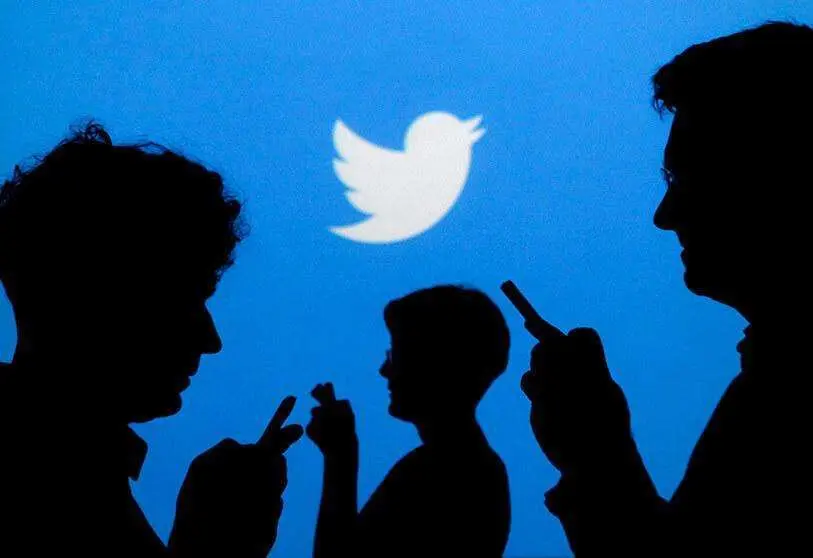Freedom of expression is worth as much or more than 44 billion dollars

It was not Voltaire, contrary to general belief, who uttered the famous phrase "I do not agree with what you say, but I will defend with my life your right to express it". Its real author is the Englishwoman Evelyne Beatrice Hall, who, under the male pseudonym Stephen G. Tallentyre, introduces it in her work "The Friends of Voltaire" (1906).
Elon Musk, the richest man in the world, has not yet given his life to defend that right, but he has just invested no less than 44 billion dollars (about 41.5 billion euros) in taking over one of the two most important platforms in the world, Twitter, whose 250 million followers are helping to shape the vision of that world, to create trends, to exalt certain ways of thinking and to destroy more than a few reputations.
Like Facebook, Twitter's most notorious coup was the expulsion of Donald Trump from its networks when he had not yet left the US presidency, although there were more than a few signs that the theoretically most powerful man on earth had instigated a coup d'état by encouraging his exalted followers to occupy the iconic Capitol building in Washington, the seat of the two legislative chambers and therefore of popular sovereignty.
Many analysts around the world applauded what was clearly a radical form of censorship, which further opened up the universal controversy about whether the owners of an opinion platform could arrogate to themselves the ability to curtail the freedom of expression of any individual so radically. The immensity of the wave of support for the measure adopted by Twitter and Facebook drowned out the arguments of those who argued that, despite his outbursts and falsehoods, Trump had the right to express them, since after all he had been elected by the people in a democratic election, with the same legitimacy that four years later he would be defeated by Joe Biden in an equally clean election.
The crux of the debate, then, lies in the de facto transfer of power and its self-attribution by those who own and manage the platforms, which in this case are based in California, a state that votes overwhelmingly for the Democratic Party. The power amassed by the big platforms has the current occupant of the White House seriously concerned, to the point that his spokesperson, Jen Psaki, expressed Biden's deep concern about the power of such gigantic platforms in everyday life, to the point that "they need to be held accountable for the damage they cause".
Elon Musk's emergence has been accompanied by the best proclamation that those of us who defend freedom of expression at all costs can hear: "I invested in Twitter because I believe in its potential to be a platform for freedom of expression around the world, a freedom of expression that is a social imperative for any functioning democracy". It is obvious that we will have to wait and see how he intends to guarantee that right so forcefully expressed by Evelyn Beatrice Hall more than a century ago.
Musk has taken the opportunity to launch a first volley at Twitter's current management, stating that "since I made my investment I have realised that the company will not thrive or meet this social imperative to respect free speech in its current form".
Megarich Musk, owner of Tesla and SpaceX, wants to make algorithms open source to increase trust, defeat spam bots and authenticate all humans. A programme that in itself implicitly denounces the policy followed until now by the platform that was born in 2006 by Google's former employees Evan Williams, Biz Stone and Jack Dorsey. We shall see how he does it, for which he will have to face the resistance of the "dictatorship" of Sylicon Valley, whose masterminds have been imposing "woke" thinking and the politics of cancellation, perversions that have spread throughout the western world like an unstoppable oil slick.
The biggest source of resistance to Musk's new plans will come from those who, in order to justify deletions and sanctions, argue that the platform should not be used to insult, smear or spread hoaxes. This is undoubtedly a great argument, which will have to be taken into account in possible new regulations. However, if insults are easily objectified, smears or fake news are not so easy to detect and, above all, to do so neutrally, that is to say, to reject, whoever it is who puts them into circulation. It seems no coincidence that Twitter is attributed with a markedly leftist tendency, and that, to cite only show business figures, artists such as Andrés Calamaro, Matt Lucas, Alec Baldwin, Ashton Kutcher, Miley Cyrus, Adele, Jennifer Love Hewitt, Owen Benjamin or Milo Yinnopoulos, all of them opposed to the dictates of the so-called single thought, have suffered censorship.

